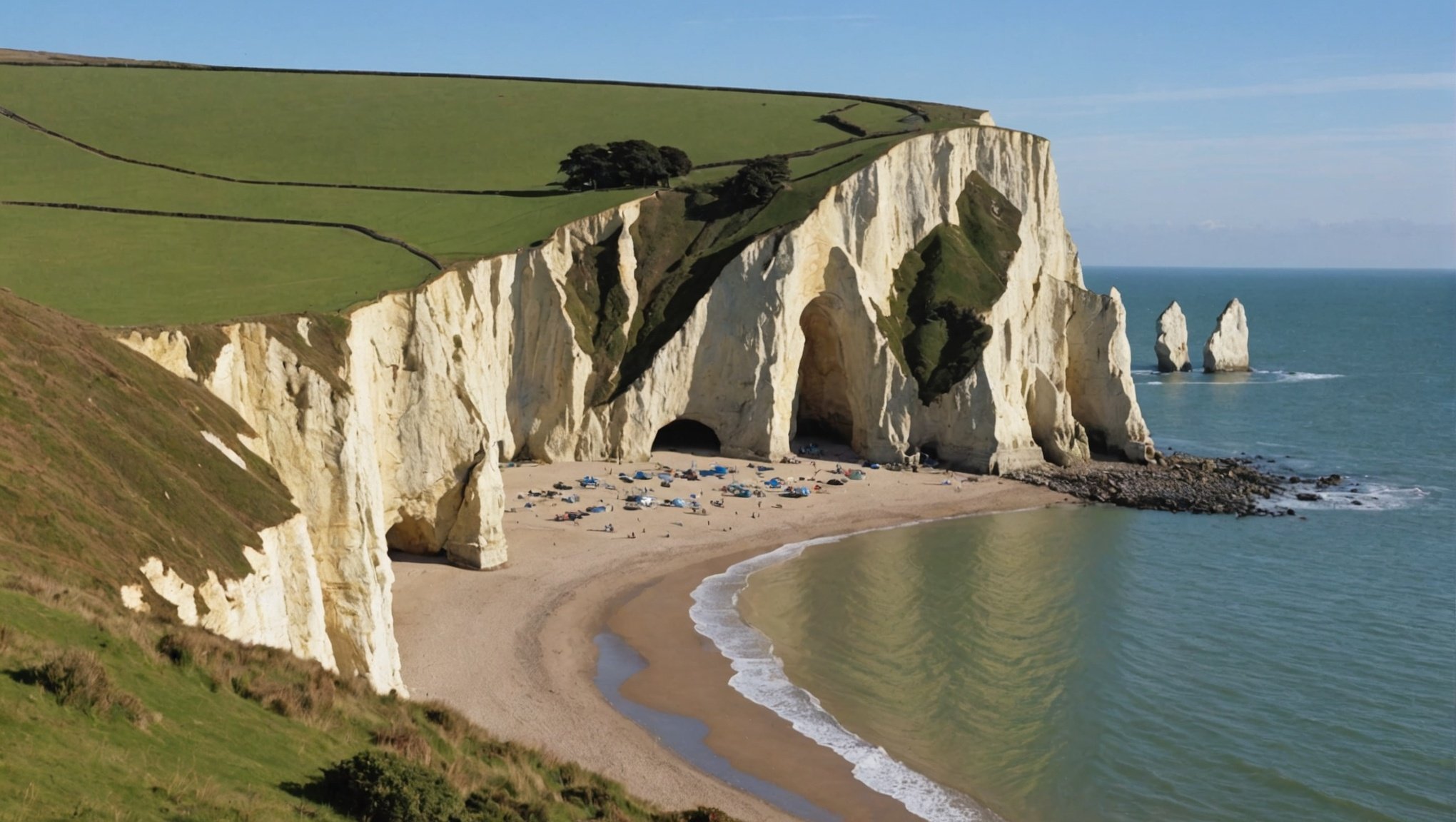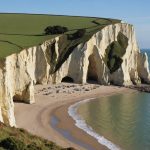The Isle of Wight is a treasure trove for fossil hunting enthusiasts, offering stunning coastal landscapes and rich geological history. This guide highlights top holiday rentals that provide not just a place to stay, but easy access to thrilling fossil hunting adventures. Imagine uncovering ancient relics while enjoying the scenic beauty around you. Whether you're a seasoned hunter or a curious beginner, these rentals cater to your needs and enhance your fossil exploration experience. Discover the perfect base for your next unforgettable adventure!
Overview of Fossil Hunting on the Isle of Wight
The Isle of Wight is a treasure trove for those interested in fossil hunting, offering a unique blend of history and adventure travel. Renowned for its rich prehistoric past, the island is often referred to as the "Dinosaur Capital of Britain." This reputation stems from the significant number of dinosaur fossils discovered here, dating back to the Early Cretaceous period.
Have you seen this : Top Family-Friendly Summer Activities to Enjoy in Your Cornwall Holiday Rental
Fossil hunting on the Isle of Wight is not only a fascinating journey into the past but also an exciting activity for families and adventure seekers. The island boasts several key fossil sites, each with its own unique characteristics. For instance, Compton Bay is famous for its dinosaur footprints, visible at low tide, while Yaverland Beach is known for its diverse array of fossils, including those of marine reptiles.
Engaging in fossil hunting can be a rewarding experience, offering educational insights and the thrill of discovery. It provides an opportunity for families to bond over a shared activity and for adventure enthusiasts to explore the island's rugged coastline. The Isle of Wight's fossil-rich landscapes promise an unforgettable adventure travel experience, blending natural beauty with historical exploration.
Topic to read : Ski apartments for sale in Meribel: your Alpine retreat awaits
Top Holiday Rentals for Fossil Hunting
When planning a fossil hunting trip on the Isle of Wight, choosing the right holiday rental can significantly enhance your experience. The best Isle of Wight holiday rentals offer proximity to key fossil sites and provide family-friendly accommodations that cater to both comfort and adventure.
Criteria for Selecting the Best Holiday Rentals
Selecting the ideal rental involves considering several factors. Proximity to fossil sites is crucial; accommodations near Compton Bay or Yaverland Beach provide easy access to prime locations. Family-friendly features, such as spacious rooms and child-safe environments, are essential for a comfortable stay. Additionally, amenities like fossil hunting guides or equipment can be beneficial.
List of Top-Rated Family-Friendly Accommodations
- Dinosaur Farm Holidays: Located near key fossil sites, this farm offers a unique stay with educational tours and fossil workshops.
- Seaview Holidays: Known for its seaside location and family-oriented facilities, it's ideal for combining a beach holiday with fossil exploration.
- Whitecliff Bay Holiday Park: Offers a variety of accommodations with direct access to fossil-rich beaches.
Unique Features of Each Rental
Each of these rentals provides unique features that enhance the fossil hunting experience. Dinosaur Farm Holidays, for instance, includes guided tours, making it perfect for educational family trips. Seaview Holidays offers a blend of relaxation and adventure, while Whitecliff Bay Holiday Park provides direct beach access, ensuring a seamless transition from accommodation to exploration.
Detailed Descriptions of Fossil Hunting Locations
The Isle of Wight offers a variety of fossil hunting locations perfect for enthusiasts and families alike. Each site provides unique opportunities for discovery and adventure.
Compton Bay
Compton Bay is renowned for its dinosaur footprints, which can be seen at low tide. This location is easily accessible, with parking available nearby. The sandy beach is ideal for beachcombing, and visitors often find fossilized dinosaur bones and plant remains. Safety tips include checking tide times to avoid being cut off and wearing sturdy footwear due to rocky areas.
Brook Bay
Brook Bay is another prime spot on the Isle of Wight for fossil enthusiasts. Known for its rich deposits, it offers the chance to find fossils of marine reptiles and ancient shells. The beach is accessible via a short walk from the nearest parking area. It's crucial to adhere to local regulations, such as not digging into cliffs, to ensure safety and preserve the site.
Yaverland Beach
Yaverland Beach is popular for its diverse array of fossils, including those of marine and terrestrial creatures. The beach is family-friendly, with amenities nearby. When fossil hunting, it's important to carry tools like a small spade and bucket, and always follow safety guidelines to protect both the environment and yourself.
Tips for Successful Fossil Hunting
Fossil hunting is an exciting adventure that combines education and exploration, especially when shared with family. To ensure a successful outing, consider these fossil hunting tips and techniques.
Essential Tools and Gear
Equipping yourself with the right tools is crucial. A small spade, a sturdy backpack, and a magnifying glass are indispensable for examining and collecting fossils. Wearing durable gloves protects your hands, while a notebook is useful for recording findings. Comfortable footwear is also essential, given the varied terrain of fossil sites.
Best Practices for Identifying and Collecting Fossils
To identify fossils, familiarize yourself with the types commonly found in your chosen area. Look for unusual shapes and textures, often indicative of fossils. When collecting, handle specimens gently to avoid damage. Always adhere to local regulations, ensuring the preservation of the site for future explorers.
Engaging Children in Fossil Hunting Activities
Fossil hunting is a fantastic way to engage children in outdoor family activities. Encourage them to participate by giving them simple tasks, such as spotting different shapes or colours. Use storytelling to spark their imagination, linking fossils to ancient creatures. Providing child-friendly tools, like lightweight buckets, can make the experience more enjoyable and educational.
Local Amenities for Fossil Hunters
Exploring the Isle of Wight for fossils is not just about the hunt; it's also about enjoying the local amenities that enhance the experience. The island offers a range of family-friendly services and dining options, making it a perfect destination for adventurers of all ages.
Nearby Facilities
The Isle of Wight is well-equipped with restaurants and shops, ensuring that fossil hunters have everything they need. Whether you're looking for a quick bite or a sit-down meal, the island's dining options cater to diverse tastes. Shops offering fossil hunting gear and souvenirs are conveniently located near popular sites, making it easy to prepare for your adventure.
Family-Friendly Services
Families will appreciate the island's services that cater to younger explorers. Many restaurants offer child-friendly menus and play areas, while local shops provide essentials like snacks and drinks. These amenities ensure a comfortable and enjoyable experience for families, allowing everyone to focus on the excitement of fossil hunting.
Transportation Options
Getting around the Isle of Wight is straightforward, with various transportation options available. Public transport, including buses, offers convenient access to key fossil hunting sites. For those who prefer more flexibility, car rentals are also available, providing easy access to the island's rich fossil landscapes.
User Reviews and Experiences
Exploring the Isle of Wight for fossils isn't just about the adventure; it's also shaped by the experiences shared by previous visitors. User reviews often highlight the unique blend of comfort and convenience offered by the island's top holiday rentals. Many guests appreciate accommodations like Dinosaur Farm Holidays for their proximity to fossil sites and educational activities, making them ideal for family stays.
Feedback on fossil hunting adventures is overwhelmingly positive. Visitors frequently mention the thrill of discovering dinosaur footprints at Compton Bay or unearthing marine fossils at Yaverland Beach. These experiences are often described as both educational and exhilarating, providing a deeper understanding of the island's prehistoric past.
Holiday rental feedback consistently recommends choosing accommodations that offer not just comfort but also easy access to key fossil sites. Previous guests often suggest bringing tools like a small spade and magnifying glass for a more fruitful fossil hunting experience.
Recommendations from seasoned visitors include checking tide times for optimal fossil visibility and ensuring children have appropriate gear for safety. These insights help create a memorable and successful fossil hunting trip, enhancing the overall adventure on the Isle of Wight.
Adventure Packages and Guided Tours
For those eager to delve deeper into the world of fossils, the Isle of Wight offers a variety of fossil hunting tours and adventure packages. These experiences are tailored to provide both novices and seasoned enthusiasts with comprehensive insights into the island's prehistoric treasures.
Guided experiences are a popular choice, as they offer structured visits to key fossil sites. Local guides, often experts with years of experience, lead these tours. They share invaluable knowledge about the island's geology and the types of fossils found here, enhancing the educational aspect of the adventure.
Joining an organized adventure package presents several benefits. Participants enjoy the convenience of a well-planned itinerary, ensuring they visit the most productive sites at optimal times. Additionally, these packages often include equipment and safety gear, eliminating the need for participants to bring their own.
Tour options vary, with some focusing on specific interests, such as dinosaur footprints or marine fossils. These specialized tours allow participants to tailor their experience based on their preferences. By joining a guided tour, fossil hunters can maximize their chances of making exciting discoveries while gaining a deeper appreciation for the Isle of Wight's rich prehistoric heritage.
Photography and Documentation Tips
Capturing the essence of your fossil hunting adventure on the Isle of Wight is as thrilling as the hunt itself. Fossil photography not only preserves the memory of your finds but also aids in documenting and sharing these experiences with others.
To achieve high-quality images of your fossil finds, consider the lighting and angle. Natural light is your best friend, so aim to photograph during the golden hours—early morning or late afternoon. Position the fossil against a contrasting background to highlight its features. A magnifying glass can also be used to capture intricate details, creating stunning close-ups.
Documenting your experience is crucial for both personal records and scientific purposes. Keep a notebook to jot down the location, date, and conditions of each find. This practice not only enriches your adventure but also contributes to the collective knowledge of fossil enthusiasts.
Involving children in photography can transform it into a fun family activity. Encourage them to take photos from their perspective, perhaps focusing on the textures or colours of the fossils. Provide them with child-friendly cameras or smartphones, and let their creativity flow. This hands-on approach fosters a deeper connection with nature and ignites their curiosity.
Safety and Environmental Considerations
Fossil hunting on the Isle of Wight is an exciting activity, but it requires awareness of fossil hunting safety and environmental concerns. Ensuring your adventure is both safe and environmentally friendly is crucial.
Safety Guidelines for Fossil Hunters
When engaging in fossil hunting, prioritize safety by wearing sturdy footwear to navigate rocky areas. Check tide times to avoid being stranded, and always inform someone of your whereabouts. Carry a basic first aid kit for minor injuries and ensure children are supervised at all times.
Environmental Impact of Fossil Hunting
Understanding the environmental impact is essential. Fossil hunting can disturb local ecosystems, so it's important to tread lightly. Avoid disrupting wildlife habitats and refrain from digging into cliffs or protected areas, as this can cause erosion and habitat destruction.
Best Practices for Responsible Collecting
Responsible collecting involves adhering to local guidelines and regulations. Collect only loose fossils found on the surface and leave the area as you found it. Use tools like a small spade with care, ensuring minimal disturbance to the surroundings. By following these practices, you contribute to preserving the Isle of Wight's natural and historical heritage for future generations.
Additional Resources for Fossil Enthusiasts
For those passionate about fossil hunting, a wealth of fossil hunting resources can deepen your understanding and enhance your exploration. Delve into educational materials that offer insights into the prehistoric world and practical tips for successful fossil discovery.
Recommended Books and Websites
To expand your knowledge, consider books like "The Complete Guide to Fossil Hunting" and "Fossils: A Beginner's Guide." These texts provide comprehensive information on identifying and preserving fossils. Websites such as the British Geological Survey and the Natural History Museum offer valuable online resources, including interactive maps and fossil identification guides.
Local Organizations and Clubs
Engage with local organizations and clubs dedicated to fossil enthusiasts. The Isle of Wight Fossil Collectors Club is a great starting point, offering regular meetings and field trips. These groups provide opportunities to connect with like-minded individuals and share experiences and discoveries.
Opportunities for Further Education and Exploration
Explore further educational opportunities through workshops and courses offered by local museums and universities. These programs often cover advanced fossil identification techniques and the geological history of the Isle of Wight. Participating in these activities not only enhances your skills but also deepens your appreciation for the island's rich fossil heritage.
















